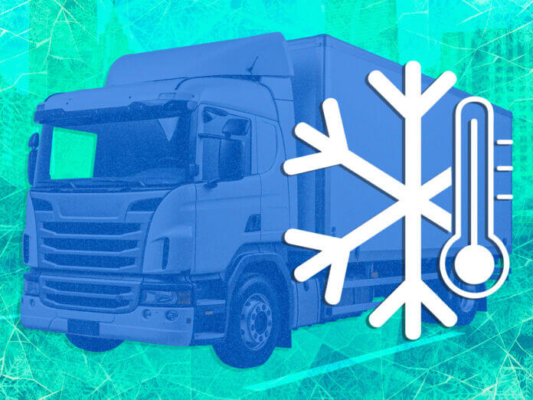In the logistics industry, transporting temperature-sensitive goods presents unique challenges. Maintaining the integrity of perishable items like food, pharmaceuticals, and chemicals requires precise temperature control throughout the supply chain.
Cold storage fleet tracking plays a crucial role in ensuring that these goods remain within specified temperature ranges during transportation, thereby preserving quality and safety standards.
What is Cold Storage Fleet Tracking?
Cold storage fleet tracking involves managing refrigerated vehicles to transport temperature-sensitive goods within precise ranges. It also requires meticulous planning and advanced technology to monitor temperature, humidity, and ventilation.
Also, this ensures product quality, and regulatory compliance, and reduces financial losses from spoilage. Real-time data and proactive management optimize logistics, enhancing efficiency and maintaining high safety and quality standards in the cold chain.
Technologies for Cold Storage Fleet Tracking
- Temperature Monitoring Systems: Advanced sensors and IoT devices monitor and record real-time temperature data in refrigerated vehicles. They also provide continuous updates and alerts to fleet managers for proactive intervention during temperature deviations.
- Bluetooth Connectivity: It ensures reliable temperature monitoring and efficient data transmission in cold storage fleet tracking.
- GPS and Telematics: GPS tracking with telematics provides visibility into vehicle location, routes, and driver behavior. This technology helps fleet managers optimize routes, plan efficient deliveries, and ensure timely arrivals while maintaining temperature control.
- Data Logging and Reporting: Automated data logging systems record temperatures during transportation, aiding regulatory compliance and quality assurance with detailed reports.
- Remote Monitoring Software: Web or mobile apps also enable fleet managers to monitor temperature, vehicle locations, and operations in real time, enhancing visibility and proactive fleet management.
- Cloud Computing: Cloud-based platforms store and process data from sensors, GPS trackers, and telematics systems. They also enable real-time data analysis, reporting, and collaboration across the supply chain stakeholders.
Benefits
- Maintaining Product Integrity: Ensures temperature-sensitive goods remain within specified temperature ranges throughout transit, preserving their quality, safety, and freshness
- Compliance with Regulatory Requirements: Helps businesses meet regulatory standards like FDA requirements by providing detailed compliance records, avoiding penalties.
- Reducing Waste and Losses: Minimizes spoilage and product losses from temperature deviations, optimizing inventory and reducing financial losses from damaged goods.
- Real-Time Monitoring and Alerts: Provides real-time updates on temperature inside refrigerated vehicles, allowing quick intervention for temperature deviations.
- Improved Customer Satisfaction: Ensures timely and safe delivery of high-quality products, building trust and reliability with customers by consistently meeting their quality expectations.
- Cost Savings: Reduces operational costs related to fuel, maintenance, and spoilage, enhancing cost-effectiveness through efficient resource utilization and waste reduction.
- Data-Driven Decision Making: Provides actionable insights through data analytics, aiding fleet managers in enhancing performance and strategic planning.
- Proactive Maintenance: Uses predictive maintenance to preemptively address issues, cutting downtime and prolonging refrigeration equipment lifespan.
- Increased Competitive Advantage: Sets businesses apart with superior quality in cold chain logistics, appealing to customers prioritizing reliable temperature-sensitive deliveries.
Best Practices for Cold Storage Fleet Tracking
- Conduct thorough pre-trip inspections of temperature control equipment and settings.
- Train drivers in handling perishable goods, temperature protocols, and emergencies.
- Optimize routes to minimize temperature fluctuations and ensure efficient deliveries.
- Utilize real-time temperature monitoring systems for continuous updates and alerts.
- Implement GPS tracking to monitor vehicle locations, routes, and driver behavior.
- Use predictive analytics to identify and address potential issues proactively.
- Maintain detailed records and reports for regulatory compliance and quality assurance.
- Employ remote monitoring software for real-time oversight of fleet operations.
- Integrate RFID technology for accurate tracking of individual packages or pallets.
Vital Technology
Effective cold storage fleet tracking is vital for transporting temperature-sensitive goods. Additionally, leveraging advanced technologies & best practices allows companies to optimize operations, ensure regulatory compliance, and maintain high product quality and safety standards.



